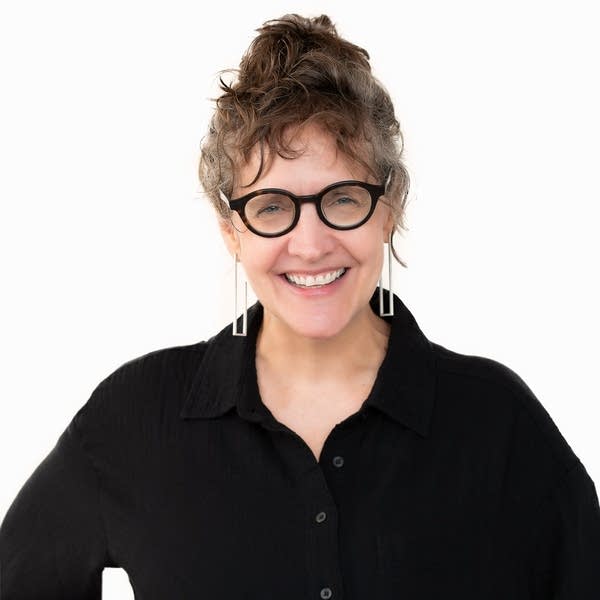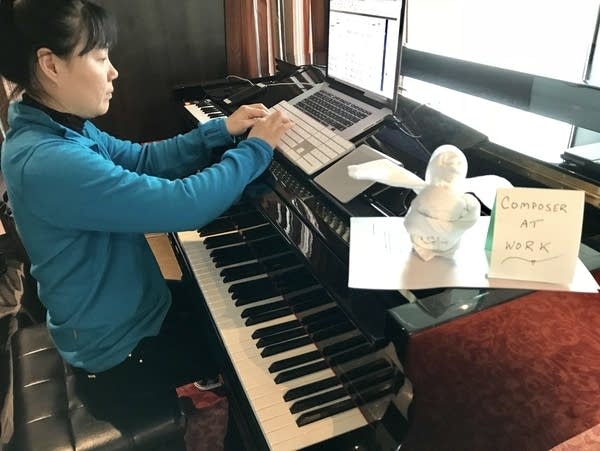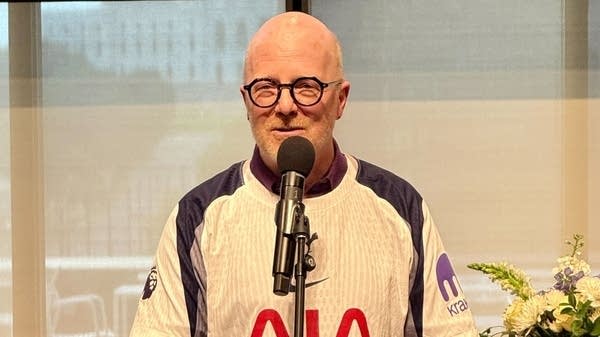The day before his final broadcast after 25 years as host of Performance Today, Fred Child joins YourClassical’s Tom Crann to reflect on a quarter-century of a program that Child describes as “a place to share music and ideas together.”
In the course of the conversation, Child shares some of his most memorable moments that have occurred through his involvement in the program, including discovering what music means to him personally. Child is also eager to pass the baton to incoming Performance Today host Valerie Kahler. Listen to the full conversation using the audio player above.
Interview Transcript
Fred Child: You know, that was part of it. And on one level, I felt like, you know, I'm so grateful to have this 25-year run. When I started hosting PT, I thought, if I can hold out for five years, that'd be fantastic. And here it's 25. And a couple of years ago, I was thinking, you know, there are more things I'd like to do in the world of classical music, in the classical music ecosphere. And I kind of just took a look at the calendar and realized that the 25th anniversary was coming up a couple of years away, and I thought that would be a great time to pass the baton. I'm very happy and proud of what I've done as the host of PT. Twenty-five years will be a nice time to put a bow on it and hand the baton, and I'm so pleased that Valerie Kahler will become the next host of Performance Today. And it just felt right. Twenty-five just felt right.

Tom Crann: You always say, and I always like when you say this: "I'm glad we have this place to share music and ideas together," and I want you to tell me more about how you see this music we call classical music, interact with the ideas of the larger world.
Fred Child: I'm so pleased you asked about this, Tom, because one of the things I thought about for years, with the encouragement of my various bosses, is come up with a tagline for the show and I thought, "Well, it's great music. It's music in concert. We take you to concerts around the world." But this just kind of came and this really is it for me, a place to share music and ideas. And for me, well, maybe this bridges me to an experience I had a few years ago. There was a different tagline that Classical Minnesota Public Radio used for a while: "Music makes us feel better. Music makes me feel better." And honestly, I railed against it at first because I thought it felt a little superficial. And I thought, "Eh, classical music is not just about making us feel better. It contains all of our emotions and helps us understand and express our own emotions and ideas. And I was speaking to a group of inmates — we did a musical event at a men's prison — and I just started talking about how as a man, I was raised really not to be very in touch with my feelings, and certainly not to express my feelings. That what it meant to be a man, in my family and the culture I grew up in, was to be stoic and just to get things done.
Tom Crann: Yep.
Fred Child: And I realized, as I was speaking to this room full of 250 men in a penitentiary, it just occurred to me that it's music that has helped me find a gateway to my own emotional world. Music makes me feel better in the sense that music makes me better at feeling. And it was this revelation as I was talking to these guys that I thought, "Oh yeah, it really is that music makes me feel better." That's what I love about music. And for me, music connects with everything. Music connects with emotion. Music connects with politics. The big picture of what we're dealing with in today's world, there are always musical connections. So to have a place to share not just music, but the ideas around the music, has felt so very special to me, and I'm just so fortunate with the incredible team at Performance Today that you know, there are half a dozen people behind the scenes who bring the show to life, too. It's not just me. But to be able to work with these amazing people and to learn every day, oh my goodness, I've been so fortunate to have this place to express this, this connection of music and ideas and the way music helps me get better every day, at feeling myself, understanding myself and understanding the world I live in.

Tom Crann: In the 25 years you've been doing Performance Today, what kind of shift has there been, or have you seen in what we call, quote, "classical music," and that term even, and what do you make of that anyway?
Fred Child: I love this question, Tom. I mean, the term "classical music" is so very vague, and it kind of means whatever we want it to mean in the moment. But to me, the biggest shift over the past, I'd say, 15 years or so, has been a shift away from thinking, "Well, there were 10 truly great composers who wrote 100 truly great master works, and everything else is kind of filler," to expanding our understanding, or really expanding our historical understanding, that there are so many people who've written incredible music. Forgotten composers throughout the history of classical music, and in particular, from underrepresented groups, from women and from demographics you might not expect from the stereotype when we think of classical music, that this music thrives when it welcomes everyone. And to me, this is the biggest seismic shift in the world of classical music that I've been lucky to witness and hopefully be a part of, is expanding that vision of what classical music is and can be.
Tom Crann: You have been, at least from my vantage point, lucky enough to get to travel to some of the great music festivals for this job. Now, the reason I say it seems great to me sometimes, you know, it is work, after all, but I think it's nice work if you can get it. So tell me about that, and traveling to where the musicians gather and the music is being made in places, especially in the summertime, in Aspen and places like that.
Fred Child: It really is an incredibly lucky thing. I mean, I get to hang out with my musical heroes and see them play and interview them and share our conversations with listeners. So that's been just extraordinary. But I have to say that the most meaningful trip was two summers ago, the summer of 2023, I traveled to Ukraine, and this was during the war. But my wife is a composer; Wang Jie is a composer of classical music. And this orchestra in the west of Ukraine played two of her pieces.
Tom Crann: Wow.

Fred Child: And we went there to be with the orchestra during this week. And it ... I have never felt musicians who believed so deeply in the meaning of what they do. I mean, musicians are very good at expressing the meaning of what they do, and I feel it every place I go. But here's an orchestra who, during a war while their country is being invaded, playing in a way that boosts morale, first of all, but also, this orchestra literally hasn't missed a beat. Air raid sirens are going off. There are bombs falling. Lviv is away from the front lines, but still taking strikes. Here's an orchestra for whom music means strength and community and coming together and bravery and courage. I have never experienced anything like that. And that was — yes, summer festival, travel is really fun, and I'm so fortunate to have gotten to do that — but to spend a week in Ukraine with an orchestra in a country at war kind of brought home to me how much music can do and mean under really stressful, difficult, painful circumstances.
Tom Crann: This is the hard question, and I almost hesitate to ask. But how about a favorite moment or two on the air, that was either a surprise or an unexpected delight?
Fred Child: Yeah, of course, tough to pick from 25 years, but I can't help but think of when, my goodness, this was near the beginning of my tenure. The Silk Road Ensemble was a new thing: Yo-Yo Ma had been gathering musicians from all along the old Silk Road, from Europe through the Middle East into Central and East Asia, and they were all gathered in the studio to record a show. And because it's Yo-Yo Ma, we invited donors, we had a live audience, and there was a lot of tension in the studio. The group hadn't played together that much at that point. For us, it was a big moment. I had never met Yo-Yo Ma until that day; I was nervous. We're just about to start. We had a massive sound check. Yo-Yo walks in with his cello, and he saw a little girl in the audience wearing a sweatshirt with a picture of Arthur, the animated PBS Kids show character. And he stopped. And here's this big momentum, all this machinery and movement to record this giant show. And he stopped, he stopped everything to talk to this five-year-old girl — "Oh, I was just on Arthur's show! You like Arthur? Let's talk about Arthur." And it just, it humanized this moment, and all the pressure went away. And it just reminded me that, oh, this is what this is about. It's about connecting with people. I don't have to be nervous about impressing anybody or making a fool of myself. If Yo-Yo Ma can can bring this whole production to a standstill to have a conversation with a five-year-old, let's just have fun and let's experience the music. And so that just, it was a favorite moment, but it also kind of changed my whole perspective about what we're doing in the world of classical music radio.

Tom Crann: You've got one program left. What's going through your mind today?
Fred Child: You know, when I first started thinking about [Friday’s] show, the last show, I first put a lot of pressure on myself — "Oh, it has to be perfect! I have to have the perfect music and the perfect phrases and the perfect thing to say..." You know, it's one more day of radio where I get to celebrate music and share music that I love. You know, you and I both know, Tom, the public radio audience is so special. They're curious, they're engaged, they're interested. They want to join you in exploration of music and ideas. So I get to do that for one more day. I get to pick out some of the music, and I get to do that once more on a national radio broadcast. I'm going to have a great time and then really look forward to whatever comes next for me.
Tom Crann: Well, Fred, we look forward to the last show. But more importantly, thank you for 25 years of great listening in so many ways. And I wish you nothing but the best for the future. Thanks for taking a few minutes out to talk to us.
Fred Child: Thank you so much.
Tom Crann: So you've picked a little music for us, a Schubert song.
Fred Child: Ah, yes, this song by Franz Schubert, the version that we're going to sample here without words, just with string instruments, in effect, singing the song, but the words to this, "An die Musik" — "to music" — it's like a toast to music: "Beloved art, in how many a bleak hour when I'm enmeshed in life's tumultuous round, you've kindled my heart to the warmth of love and carried me to a better world. A sweet sigh escaping from your harp, a sweet celestial chord has revealed to me a heaven of happier times. Beloved art of music. I thank you."
Love the music?
Show your support by making a gift to YourClassical.
Each day, we’re here for you with thoughtful streams that set the tone for your day – not to mention the stories and programs that inspire you to new discovery and help you explore the music you love.
YourClassical is available for free, because we are listener-supported public media. Take a moment to make your gift today.
